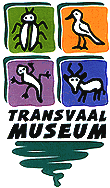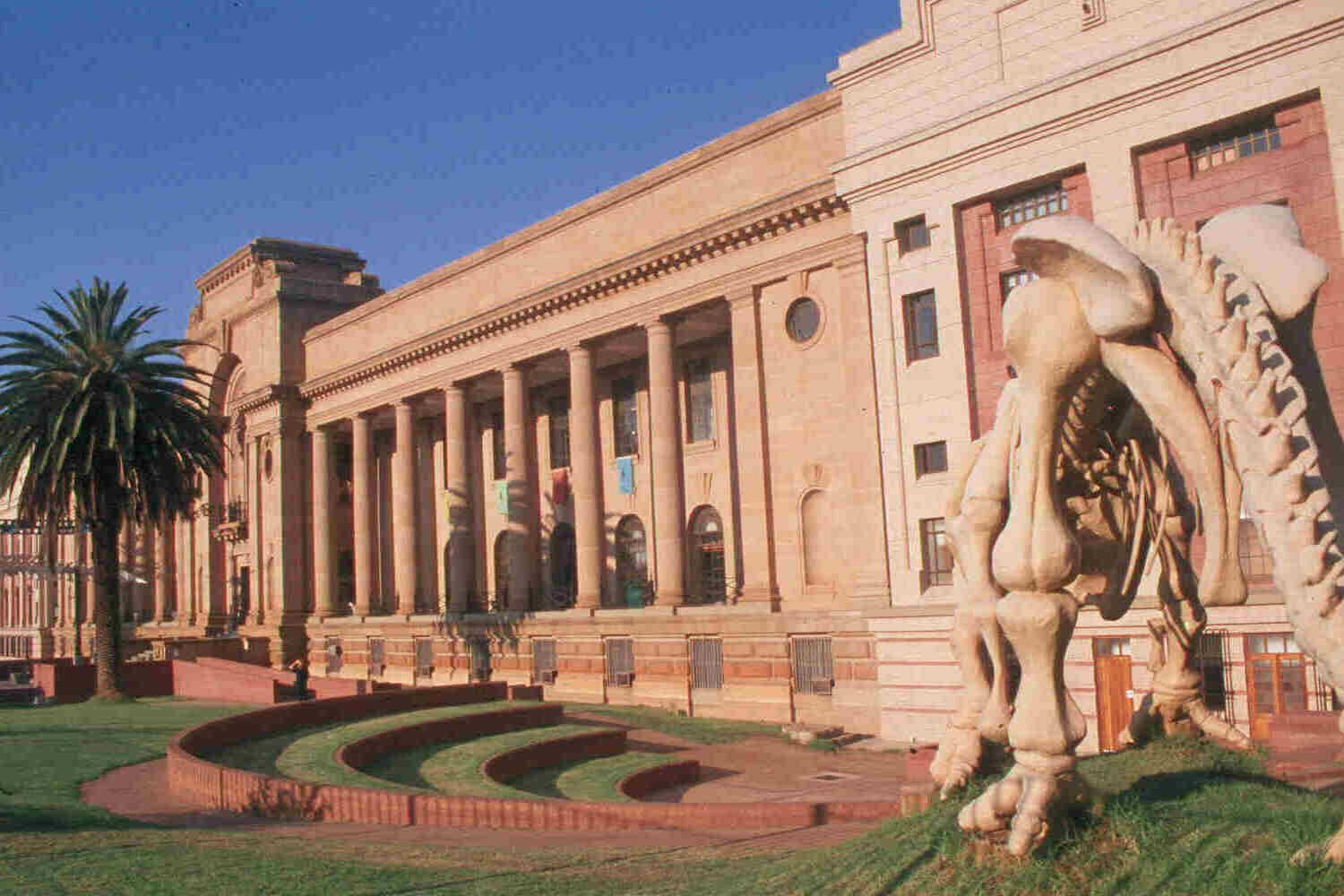
Transvaal Museum
Paul Kruger Street
SOUTH AFRICA
Tel:
Fax:
In 1999 the Transvaal Museum amalgamated with the National Cultural History Museum (comprising 6 museums) and the South African National Museum of Military History in Gauteng under the Northern Flagship Institution (NFI).
The current manager is Mrs Carina Malherbe. The former invertebrate departments of Coleoptera, Lepidoptera, General Entomology and Invertebrates were regrouped into a separate entity now known as the Department of Invertebrates, while the previous departments of Mammalogy, Ornithology, Herpetology and Archaeozoology became the Department of Vertebrates.The Department of Paleontology includes the paleontological collections.
The new structure has enabled the TM to consolidate its resources by removing the duplication of costs and field equipment while other resources are now shared. In addition the restructuring has allowed for better and more efficient human resource management that gives researchers more time for research, and the collection managers full responsibility for the collections.
In order to comply with new priorities towards community upliftment and education, the museum has to change from an academic environment to that of a commercial industry. It has to be more output driven, unlike previously where it has been task orientated. This way of thinking is a new concept in museology in South Africa; in order to accomplish this, the Transvaal Museum is looking to form new international partnerships and strengthen existing ones with other research institutions and commercial industries. With its specialized knowledge and expertise in the museum and the NFI, contract research is one aspect where the Transvaal Museum can be of use to the international scientific and business community.

The Museum aims to become financially more self sufficient, and less reliant on Government-aided funding. The museum is attempting to comply with the national priorities as outlined by government. The museum endeavours to take knowledge to the people through education programs geared towards outcomes based education.
Through more frequent and structured contact with the community, the museum is becoming more aware of what the community wants and needs from the museum instead of being obliged to accept arbitrary decisions made on their behalf. The amalgamation of the Transvaal Museum with the and the South African National Museum of Military History has positioned the museum favourably to undertake contracts and projects that require a boarder knowledge base.